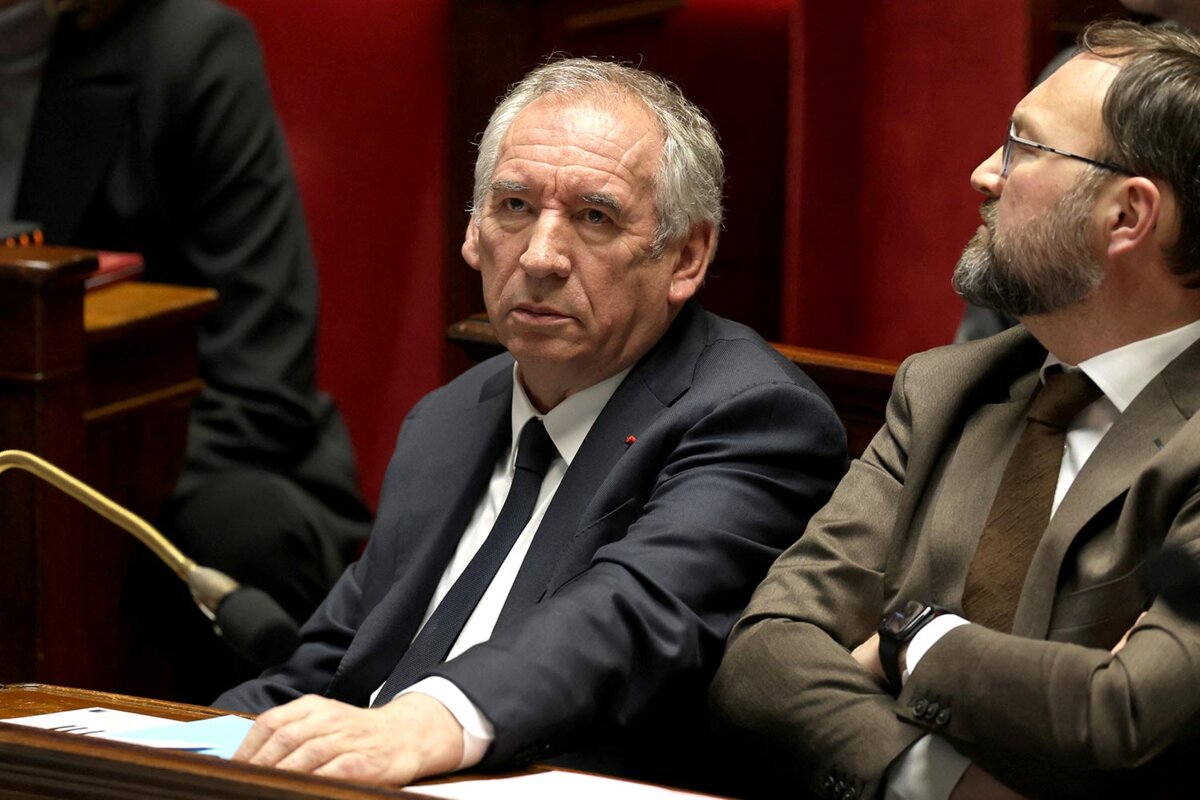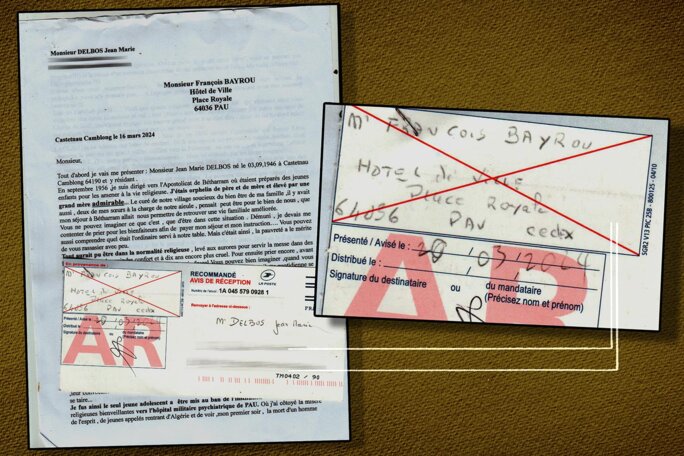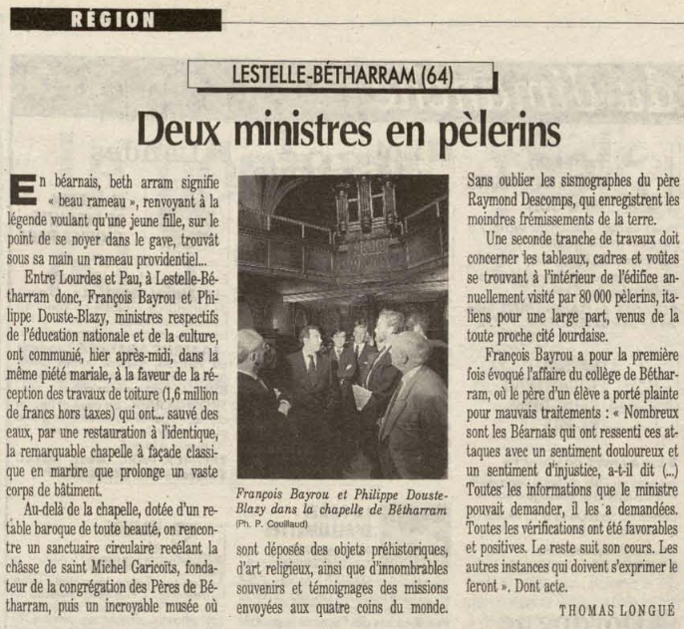French Prime Minister François Bayrou, who Mediapart earlier this month revealed was made aware of allegations of multiple acts of violence and sexual assault against pupils at a Catholic secondary school in his political fiefdom in south-west France but took no action to expose the establishment, this week denied before parliament that he knew of the events.
In a heated exchange in the National Assembly on Tuesday, Paul Vannier, Member of Parliament for the radical-left La France Insoumise (LFI) party, asked Bayrou: “Why did you not protect the pupils of the Notre-Dame-de-Bétharram school, [who were] victims of paedo-criminal violence?”
“I maintain that I was never informed about anything to do with violence [at the school], or a fortiori sexual violence, never,” replied Bayrou, 73, mayor of the town of Pau, near to which the Notre-Dame-de-Bétharram school is located.
But Mediapart can reveal that Bayrou, a local MP from 1986 to 2012, who served as education minister from 1993 to 1997, and who sat for 26 years on the council of the local Pyrénées-Atlantiques département (county), was made aware of the assaults at the school on at least three occasions but never denounced the scandal.
To date, a total of 112 formal complaints have been filed by alleged victims of physical and sexual violence at the school, relating to incidents over a period dating from the 1950s up until 2010.

Enlargement : Illustration 1

Bayrou was sent a letter by recorded delivery in March 2024 by Jean-Marie Delbos, a former pupil at the school and now aged 78, in which he described the rapes and other sexual assaults he suffered as a border at the school and called into question Bayrou’s continued silence over the multiple public allegations of abuse of pupils by the staff.
Delbos said when he was a young teenager he was raped at the school on several occasions by a clergyman. More than 60 years later, he was officially recognised as a victim of sexual assault by the French Catholic Church, and was paid reparations in an agreement dated March 20th 2023 which was signed with the Commission Reconnaissance et Réparation (CRR). The CRR is an independent “Committee for Recognition and Reparation” created in 2021 following a series of revelations of sexual assaults committed by members of the Church.
It was one year later, on March 16th 2024, that Delbos sent his letter to Bayrou to complain over the silence surrounding the events at the Notre-Dame-de-Bétharram school, where several of Bayrou’s six children were pupils, and to invite him to listen to the accounts of the victims of the sexual assaults at the establsihment.
Orphaned, Delbos arrived at the school as a border in 1956, when he was aged ten. “Everything could have been idyllic” he wrote in his letter to Bayrou. “Except that in 1957 a young clergyman arrived at the dormitory” who Delbos said would come to his bed at nights “cassock opened”. He described the “fellatios” and “fondling” he suffered, and which he said lasted until “the end of 1961”. He also detailed the lengthy process before he was finally recognised by the Church as a victim of the sexual abuse.
Sent by recorded delivery, he has the proof that the letter was delivered to Bayrou at Pau town hall on March 20th last year (see below).

Enlargement : Illustration 2

Delbos never received any reply to his letter. “I’m just a poor baylet, I imagine Bayrou couldn’t care about me,” Delbos told Mediapart (“baylet” meaning domestic servant in the local Béarnais patois). In his letter, Delbos, well before the current controversy over Bayrou’s silence over the events at Notre-Dame-de-Bétharram emerged, pointed to the local “notables” who sent their children to the school as the reason for the decades of non-denunciation which allowed the abuse to continue.
The French prime minister’s office failed to respond to Mediapart’s questions submitted to it about the absence of any response to the letter.
Replying to MP Paul Vannier’s remarks on Tuesday, Bayrou also misled the chamber over other warnings he should have been aware of. “When the first complaint [of violence at the school] was filed, I had already left the ministry of education several months earlier, since it was in December 1997 and I had left the ministry in May 1997,” he said. In fact, the first conviction for violent behaviour towards a pupil of the school was handed down to a dormitory supervisor in June 1996. In May 1996, one month after the father of the pupil filed the complaint, the then education minister Bayrou made an official visit to the school, when the nature of the complaint was reported in the local and even national media.

Enlargement : Illustration 3

Bayrou referred directly to the complaint in an interview with local daily Sud Ouest (see left). “There are numerous Béarnais who have felt a sentiment of pain and injustice about these attacks [against the school],” he told the paper. He also engaged his own responsibility in defence of the school’s management. “All the information that the minister [editor’s note: a reference to himself] could have asked for, he has asked. All the checks were favourable [to the school] and positive. The rest follows its course. The other authorities which are required to pronounce [on the matter] will do so.”
Françoise Gullung taught mathematics at Notre-Dame-de-Bétharram from September 1994 until September 1996. She said that it was during her last year at the school that she also alerted Bayrou to violence directed against pupils at the school. She said she first spoke about the abuse with Bayrou’s wife Élisabeth, who led catechism classes at the school, and subsequently spoke about the subject directly with Bayrou when he attended a medal-giving ceremony. “He minimised [the matter], saying that I was no doubt exaggerating a little,” she said in an interview published in July 2024 by weekly news magazine Le Point. “I know that the school’s nurse also wrote letters to him.”
Contacted by Mediapart, Gullung maintained her account, adding that she also sounded the alarm over the violence to civil and religious authorities. “The problem,” she told Mediapart, “is that we are in an extremely closed world.” In 1996, the school’s longstanding lawyer, Serge Legrand, who was involved with the case, was at the time also engaged in political activities within Bayrou’s centre-right party.
When one has a position of responsibility, you explain yourself, you take responsibility and don’t profit from your power in order to stifle everything.
Over the almost three decades since that first complaint for violence at the school was filed and the perpetrator convicted, Bayrou has made no public statement of empathy towards the victims and plaintiffs of the abuses carried out at Notre-Dame-de-Bétharram – until this week. Addressing parliament on Tuesday, he spoke of his “sympathy” and his “first thoughts” for “the men or boys who have been suffering in those cases”.
Questioned by Mediapart, Jérôme (last name withheld), the father of the first declared victim of violence in 1996, remains furious. His son, who received blows to his ear, and who has since lost his hearing, was in the same class as Bayrou’s son Calixte when Jérôme denounced the violence. “As minister of education, he was responsible,” said Jérôme. “What did he do with our alerts? Nothing.” He accused Bayrou of hiding “the fact of having done nothing at the time”.
“Today, François Bayrou should explain himself and stop seeking refuge behind his amnesia,” added Jérôme. “When one has a position of responsibility, you explain yourself, you take responsibility and don’t profit from your power in order to stifle everything,” added Jérôme. “And if he is truly amnesiac, Bayrou can no longer carry out his duties and should leave his post.”
A third case known to François Bayrou
In 1988 another judicial case involving the school emerged, when Bayrou, as he rightly told MPs this week regarding that occasion, was no longer education minister. This involved Father Pierre Silviet-Carricart, a director of Notre-Dame-de-Bétharram, who was accused of raping a ten-year-old pupil and who was placed under formal investigation pending charges.
Bayrou denied being alerted to the events of the case, yet he met with the examining magistrate in charge of the investigation, Christian Mirande, to discuss the probe, despite the rules of confidentiality that would normally prevent the judge from divulging such information. “Our meeting at that time was not about anything else,” Mirande told Mediapart. “It was specifically about this case, notably because one of his sons was schooled at Notre-Dame-de-Bétharram.” Bayrou initially denied that the meeting took place, before finally saying that it did happen, although minimising its importance.
Thierry Sagardoytho, the lawyer acting on behalf of the plaintiff, said he believed it was “obvious” that Bayrou “had been told of the complaint”.
Father Pierre Silviet-Carricart committed suicide in early 2000 shortly before he was due for further questioning by Judge Mirande after the opening of a second investigation into his alleged rape of another young boy. Silviet-Carricart had earlier been released from detention, when he found refuge in the Vatican. He died from drowning in the river Tiber, and his body was buried close to Pau. Élisabeth Bayrou attended the priest’s funeral.
-------------------------
- The original French version of this report can be found here.
English version by Graham Tearse


